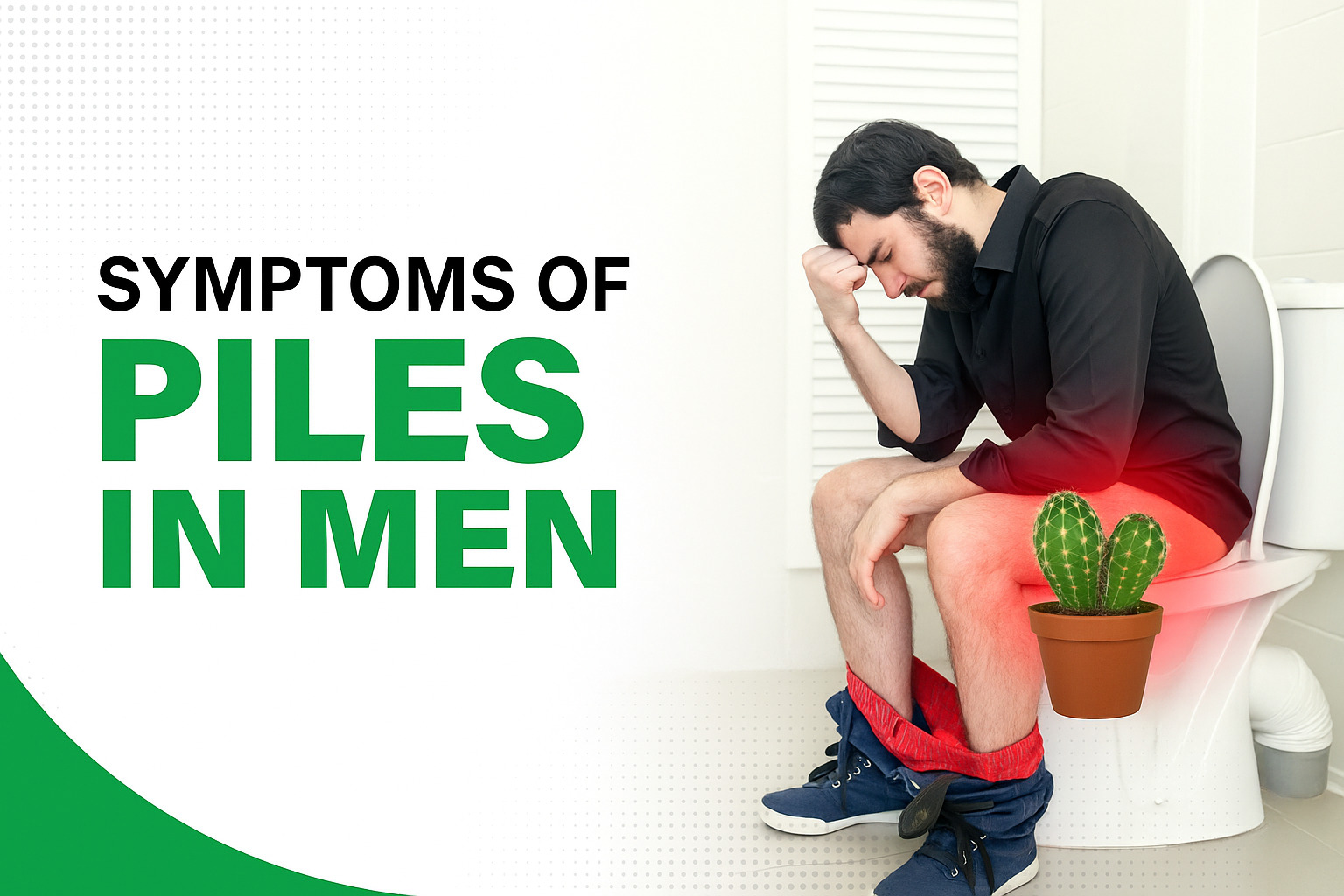Piles, also known as hemorrhoids, are swollen and inflamed veins in the rectum and anus that cause discomfort, pain, and other unpleasant symptoms. Although piles can affect both men and women, men are often more reluctant to seek medical help, which leads to the worsening of their condition over time.
If you or someone you know is suffering from symptoms of piles, early diagnosis and treatment by a qualified piles doctor in Jaipur can make a big difference. In this article, we’ll highlight the six major symptoms of piles in men that should never be ignored—and how seeking timely care can help you avoid complications.
What Are Piles?
Piles are vascular structures in the anal canal that help with stool control. They become pathological (swollen or inflamed) when subjected to too much pressure or strain. Depending on their location, piles can be:
- Internal Piles – Occur inside the rectum and are usually painless but may bleed.
- External Piles – Develop under the skin around the anus and can cause pain, itching, and swelling.
- Rectal Bleeding
One of the most common early signs of piles is bright red blood after a bowel movement. It may be visible on toilet paper or in the toilet bowl.
Why You Shouldn’t Ignore It:
- It could be a sign of internal hemorrhoids or something more serious like colon cancer.
- Continuous bleeding can lead to anemia or weakness.
If you notice rectal bleeding, it’s time to consult a skilled piles doctor in Jaipur to identify the exact cause and begin appropriate treatment.
- Anal Pain or Discomfort
Pain during or after bowel movements is a strong indicator of external or thrombosed hemorrhoids (clotted piles). You may also feel pain while sitting or walking.
Warning Signs:
- Sudden or sharp pain.
- Pain that worsens while passing stool.
- Throbbing sensation around the anus.
Don’t wait for the pain to subside on its own—an experienced piles doctor in Jaipur can provide fast and effective relief through medication or minor procedures.
- Itching or Burning Sensation
Chronic itchiness or irritation in the anal area is often caused by mucus discharge from piles, which irritates the skin.
What Causes It:
- Constant moisture.
- Incomplete cleaning.
- Fungal or bacterial infections due to scratching.
Using over-the-counter creams may give temporary relief, but consulting a proctologist or piles specialist in Jaipur ensures long-term treatment and comfort.
- Swelling or Lumps Around the Anus
Feeling a lump near your anal area? It could be an external hemorrhoid or a prolapsed internal one. These lumps may be painless initially but can become painful if clots form.
Look Out For:
- Blue or purple-colored lumps.
- Swelling after straining or lifting.
- Discomfort while sitting.
A certified piles doctor in Jaipur can diagnose whether it’s a thrombosed pile or another anal condition and suggest the right course of action.
- Mucus Discharge and Anal Soiling
Some men experience a slimy discharge from the anus, especially if piles prolapse outside the rectum. This can cause itching, irritation, and soiling of undergarments.
Why It’s a Concern:
- May lead to hygiene issues.
- Could be mistaken for rectal incontinence.
- Indicates prolapse or weakening of rectal muscles.
Instead of ignoring it or using home remedies, book an appointment with a trusted piles doctor in Jaipur to prevent worsening.
- Sensation of Fullness or Incomplete Evacuation
Feeling like you haven’t fully emptied your bowels is another common symptom. Piles can block the rectal passage, making bowel movements difficult.
Additional Complaints:
- Straining frequently.
- Lower abdominal discomfort.
- Repeated urge to defecate.
The best piles doctors in Jaipur often recommend dietary changes and minimally invasive treatments to resolve these symptoms effectively.
Common Causes of Piles in Men
Understanding the root causes of piles can help you take preventive measures:
- Chronic constipation or straining
- Sitting for long hours
- Obesity
- Heavy weightlifting
- Low-fiber diet
- Genetic predisposition
- Poor toilet habits
If any of these apply to you, it’s wise to consult a piles specialist in Jaipur even before severe symptoms develop.
Diagnosis & Treatment: What to Expect
When you visit a piles doctor in Jaipur, they may perform the following:
- Physical examination
- Digital rectal exam
- Anoscopy or Proctoscopy
- Colonoscopy (if bleeding persists)
Treatment Options:
- Lifestyle Modifications: Diet, hydration, and regular exercise.
- Medications: Pain relievers, anti-inflammatory ointments, stool softeners.
- Non-Surgical Procedures: Rubber band ligation, infrared coagulation, or sclerotherapy.
- Surgical Treatment: Hemorrhoidectomy or stapled hemorrhoidopexy for advanced cases.
Why Choose a Piles Doctor in Jaipur?
Jaipur is home to highly experienced proctologists and colorectal surgeons who specialize in painless, laser-based treatments for piles. Modern clinics offer:
- Same-day procedures
- Minimal or no downtime
- Affordable treatment packages
- Personalized care and follow-ups
Whether your symptoms are mild or severe, finding the best piles doctor in Jaipur can ensure fast relief and prevent recurrence.
Tips to Prevent Piles
Even if you’ve never experienced piles, these tips can keep you safe:
- Eat a fiber-rich diet (fruits, veggies, whole grains).
- Drink 8–10 glasses of water daily.
- Avoid prolonged sitting on the toilet.
- Exercise regularly.
- Don’t ignore the urge to pass stool.
If you’re prone to constipation or already have mild symptoms, schedule a checkup with a piles doctor in Jaipur to catch the condition early.
Conclusion
Piles are a common condition but often go unaddressed—especially in men—due to hesitation or lack of awareness. The key is to pay attention to early warning signs like bleeding, pain, itching, or swelling around the anal area.
If you’re experiencing any of the 6 symptoms of piles, don’t ignore them. The sooner you get help, the easier and faster the recovery. Whether it’s a non-surgical procedure or lifestyle guidance, a qualified piles doctor in Jaipur can help you get back to livin
